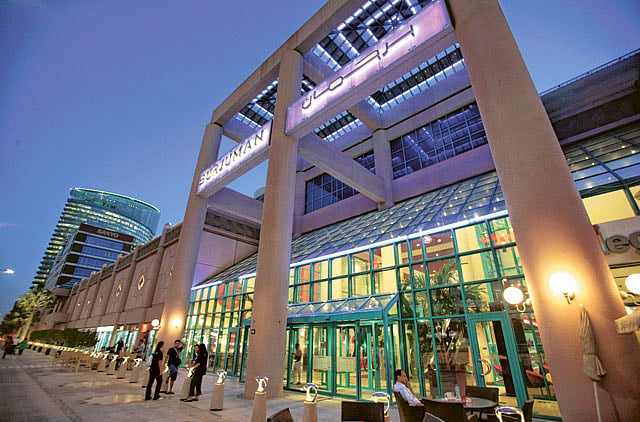Dubai: Retailers are now able to negotiate cheaper rents thanks to Dubai's saturated retail market, experts say.
David Macadam, the head of retail at consultancy Jones Lang LaSalle, said that landlords are looking to negotiate with shops on more effective rent deals to fill empty spaces.
"Most landlords want open dialogues with retailers," he said.
One technique that landlords are currently using is setting rents as a function of sales, which is both convenient for retailers and ensures that landlords get paid. Lower sales lead to lower rents, and vice-versa.
Macadam also said that with mall vacancies hovering at 15 to 30 per cent in the second quarter of this year, major malls in the city are eager to fill the remaining space, giving shops the edge when it comes to negotiating rents.
He said that although rents have remained largely unchanged in Dubai since the first quarter of this year, they fell nine per cent from the last quarter of 2010, after having decreased six per cent from the third quarter of 2010.
Retail rents in Dubai are currently around Dh1,885 per square metre, according to a report issued by Jones Lang LaSalle. This year's constancy is driven by the stabilisation in the number of consumers in Dubai, as well as the lack of new major retail projects being planned in the next few years.
Meanwhile, in Abu Dhabi, where malls enjoy occupancy rates of over 98 per cent and rents have remained stable over the last two years, landlords are now offering rent-free periods of one year on five year leases, as well as contributing to fit-out costs.
"Since there is an under-supply of quality malls in Abu Dhabi the rents are still stable here," Ashraf Ali, executive director of Emke Group, which owns Al Wahda, Khalidiya Mall and Medinat Zayed shopping centre.
Safeguard interests
"To safeguard the interests of both the developers and the tenants against volatile market conditions, many malls are working on a "Rent plus Revenue share" basis. This works better for both sides," he added.
That situation is set to change in the next few years, with several new mall projects planned in the capital likely to push down mall retail rents.
Fareed Abdul Rahman, senior director of leasing at Majid Al Futtaim, said, "Rent for us has always been calculated on the basis of potential sales that are to be generated by tenants."
He also said that because the malls owned by the company were doing well, the company has been able to "set sustainable rents for [its] tenants."
Off the island, rents are declining as the market shifts in favour of tenants, the report shows. The decrease is driven by lower demand for properties off the island, leading to higher vacancy rates and lower rents.
Currently, non-mall retail space makes up 54 per cent of the total supply in the capital.
Macadam said that properties off Abu Dhabi are seen as untested, but the next couple of years will see stabilised markets and prices. New mall projects, of which four are currently in development, are also in uncharted waters, he said, and it "takes time for the market to assimilate".
"Perhaps not all will be built on schedule," Macadam said, adding that it was more likely projects would be added on slowly.
Rents and prices in non-mall areas also remained stable in Dubai, albeit at lower than the rates for malls. Such areas enjoy less popularity among consumers because of "a lack of adequate parking space at storefronts," said Macadam — something that could be very taxing for consumers in the summer heat.
Sign up for the Daily Briefing
Get the latest news and updates straight to your inbox
Network Links
GN StoreDownload our app
© Al Nisr Publishing LLC 2025. All rights reserved.
